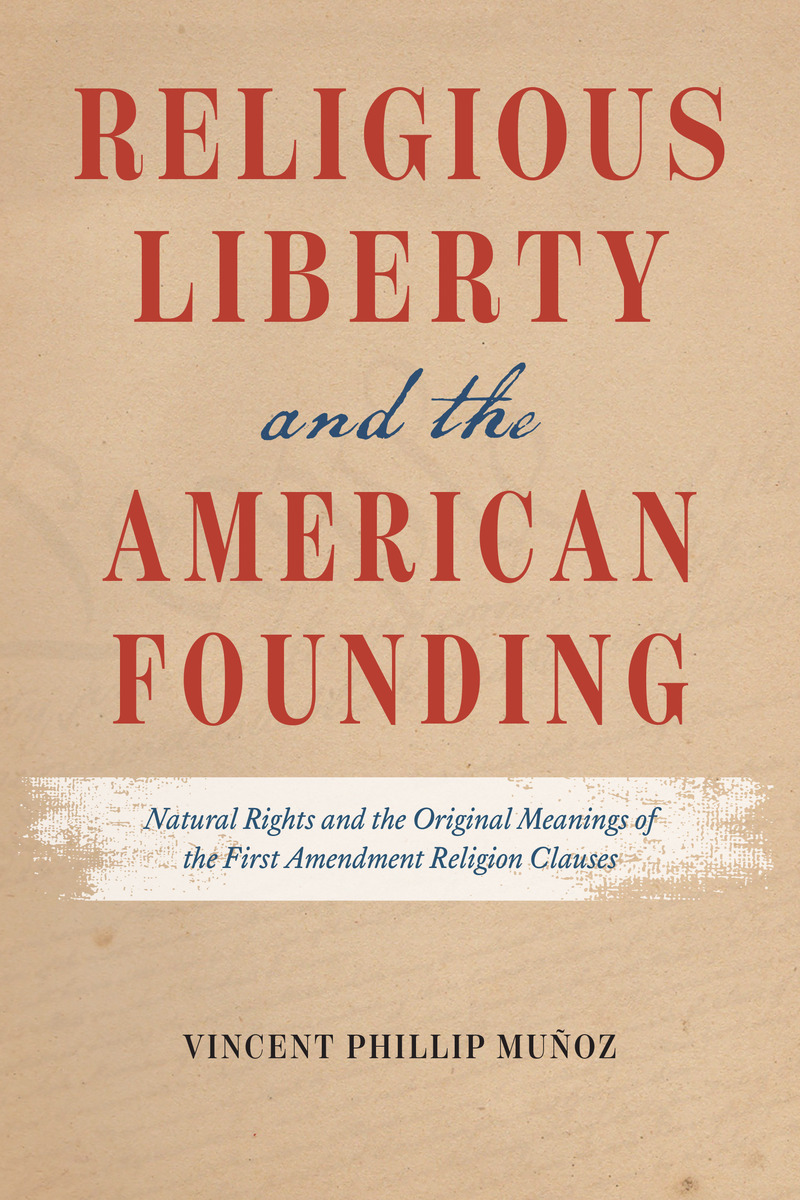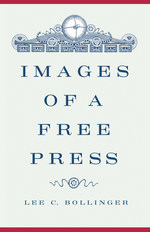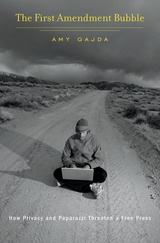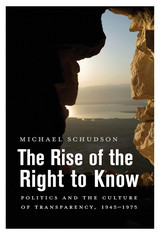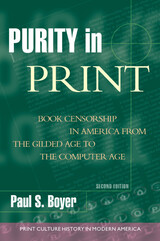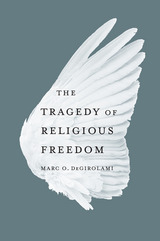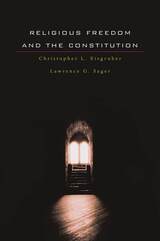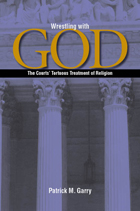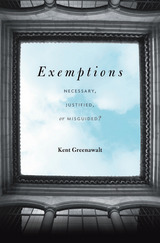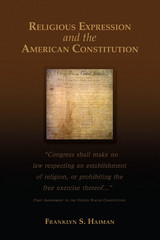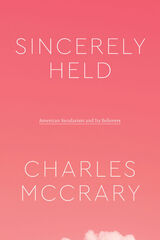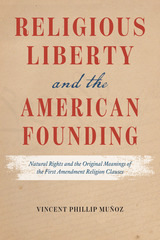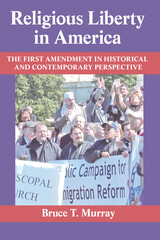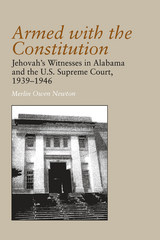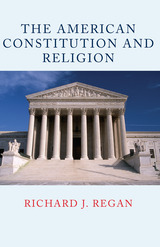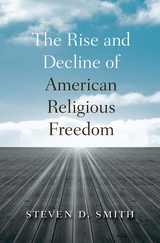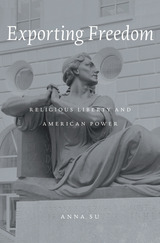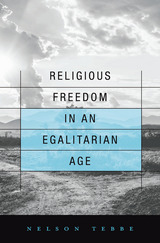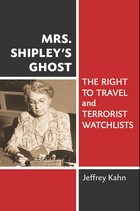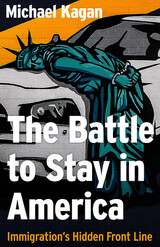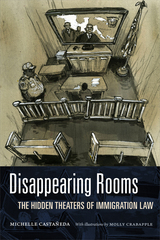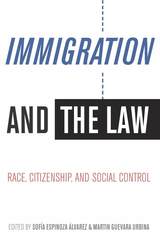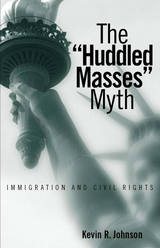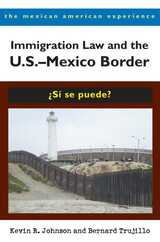“Muñoz’s exploration of the natural law foundations of religious liberty is highly illuminating. It is a model of how natural law analysis can be used to understand constitutional rights.”
— Philip Hamburger, Columbia Law School
“Muñoz offers a careful reconstruction of the original meaning of the religion clauses, scrupulously mapping the motives and concerns that animated the framers. He vividly recreates their world and draws surprising contemporary implications from the constitutional text they wrote—implications that pose a serious challenge to the self-styled originalists on today’s Supreme Court.”
— Andrew Koppelman, author of "Defending American Religious Neutrality"
"Vincent Phillip Muñoz’s superb new book is an indispensable guide to the issue that will soon replace abortion as the most important point of contention in our constitutional law. . . . The relationship between church and state will become the defining concern of a new era in the courts. . . . The framers wrote the religion clauses of our Constitution to set the parameters, as best they could, for a healthy and noble balance between freedom and order. Recovering the original meanings of those clauses is essential if we are to restore that balance, and Vincent Phillip Muñoz’s book gives invaluable aid in that necessary task."
— Claremont Review of Books
"Vincent Phillip Muñoz’s lucid Religious Liberty and the American Founding provides one of the best treatments we have on the meaning of the religion clauses, despite the sometimes unclear records of their development. He delivers a compelling analysis of the state constitutional debates and their various comments about religious liberty....[His] review of what the Founders did—and did not—say about religious liberty, church-state relations, and natural rights is one of the best analyses I’ve ever seen on this sometimes perplexing historical topic."
— Action Institute
"Religious Liberty and the American Founding provides a superb analysis of the natural-rights thinking that undergirded the founders’ understanding of the relation between religion and government. Muñoz examines the moral premises, political ideas, and public debates that informed the Constitution’s best-known limitations on government’s power to regulate religion. His natural-rights constitutionalism yields results that at different junctures will discomfit the right and the left. But his analysis makes better sense of the Constitution’s promise of religious liberty than the major alternatives."
— RealClear Politics
"Phillip Muñoz, whose religion clauses scholarship is incredibly learned and thoughtful, now provides significant evidence of a natural rights basis for religious liberty in the American founding with a complete study in his new book, Religious Liberty and the American Founding. Muñoz contends, with deep support, that this natural rights foundation is the most historically accurate formulation of religious liberty."
— Law & Liberty
"Muñoz’s account exhibits impressive scholarship; it provides a lucid explanation of the Founders’ natural rights thinking; and the examination of constitutional texts is methodical and informative. The analysis of the legislative history of the Establishment Clause is as meticulous as any I have seen."
— Public Discourse
"This book is the culmination of a decade of Muñoz’s scholarship on the religion clauses of the First Amendment. Those who imagine there is nothing new and valuable to say on this much-analyzed topic should think again. Muñoz has written the best account in one place of the way in which the political theory of the founders regarding religious liberty connects with the delphic legal text of those clauses."
— Michael W. McConnell, First Things
"The importance of the First Amendment is universally understood. It is the most discussed part of the Constitution and the courts have ruled on its meaning many times. Muñoz argues persuasively, however, that scholars, lawyers, and judges have all done a consistently sloppy job of seeking to understand what the founders actually meant by the words they used."
— Journal of the American Revolution
"This book is an outstanding guide to the many schools of thought on religious liberty in the United States and in his argument for an inalienable natural rights understanding as the Founders’ most authoritative view, Muñoz convincingly shows that competing accounts (e.g., 'neutrality,' 'accommodation,' 'separation,' 'non-endorsement,' 'minimizing political division,' and 'tradition') do not capture the deepest understanding of the Founders’ thought."
— New Books Network
"In a field crowded with books on religious liberty, Muñoz’s is especially welcome because it perhaps uniquely relies on the natural rights theory of the founding and its implications for constitutional interpretation. It is a radical book, in both senses of that term. He makes bold claims, and he returns to the roots: natural rights, which he argues are the original meaning behind the legal original meaning."
— Thomas G. West, University Bookman
"In Religious Liberty and the American Founding, Vincent Phillip Muñoz offers an intriguing new argument on the meaning of the religion clauses of the First Amendment of the U.S. Constitution. His unconventional argument is not likely to please anyone in the heated political and legal debates over religious liberty, but this book deserves a close reading from anyone interested in religious liberty juris-prudence, natural rights theory, or originalist approaches to constitutional interpretation."
— Keith E. Whittington, Perspectives on Politics
"Vincent Phillip Muñoz’s book Religious Liberty and the American Founding is a marvelous piece of historical reconstruction, bringing to vivid life the intellectual world of the framers. He gives the reader a sharply etched picture of their natural rights philosophy."
— American Political Thought
“Phillip Muñoz has written a book both very excellent and very provocative.”
— American Political Thought
“This well-researched, thoughtful, and careful work seeks to illuminate how the founders understood both religious liberty and the separation of church and state. . . . Muñoz’s constructions of these [First Amendment religion] clauses yield intriguing results that do not line up neatly with any current jurisprudential approach to either religious liberty or the separation of church and state.”
— American Political Thought
“Religious Liberty and the American Founding is the best book I have read on its topic. It also could not be timelier, because the topic of religious liberty is central to some of the most pressing and difficult constitutional, political, and moral issues in American life today.”
— American Political Thought
"Religious Liberty and the American Founding is a pleasure to read. Muñoz writes well and exceptionally clearly, and his book will appeal both to the educated public and to constitutional lawyers and scholars who spend their time immersed in doctrinal debates. He offers a wealth of detail on the drafting and ratification of the religion clauses. And the story he tells is a persuasive one."
— Journal of Law and Religion
"Religious Liberty and the American Founding is learned and lucid, a great achievement that will quickly become part of the religion clauses canon."
— Journal of Law and Religion
"In a field crowded with books on religious liberty, Muñozʼs is especially welcome because it perhaps uniquely relies on the natural rights theory of the founding and its implications for constitutional interpretation. It is a radical book, in both senses of that term: he makes bold claims, and he returns to the roots: natural rights, which he argues are the original meaning behind the legal original meaning."
— The Russell Kirk Center
